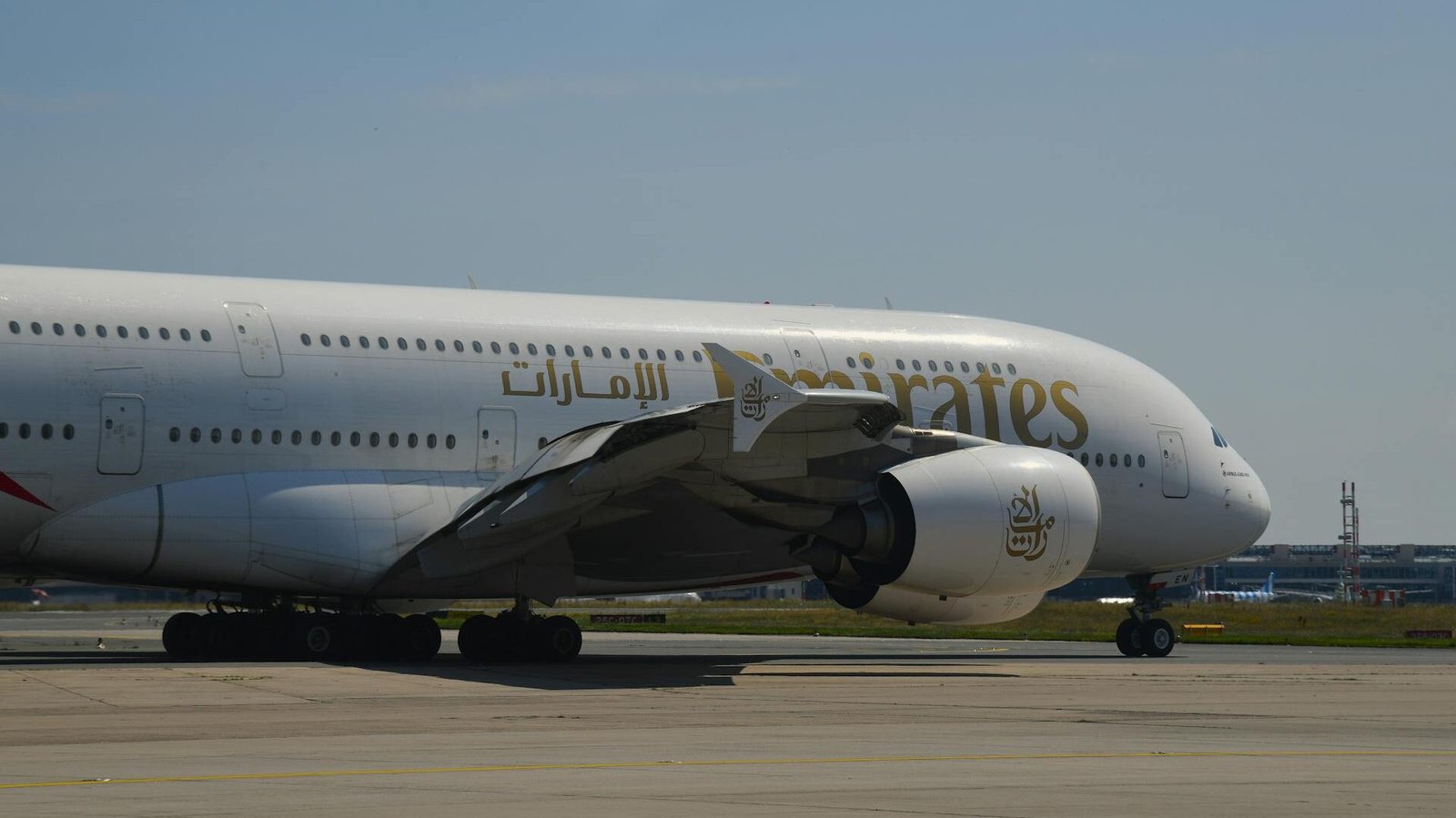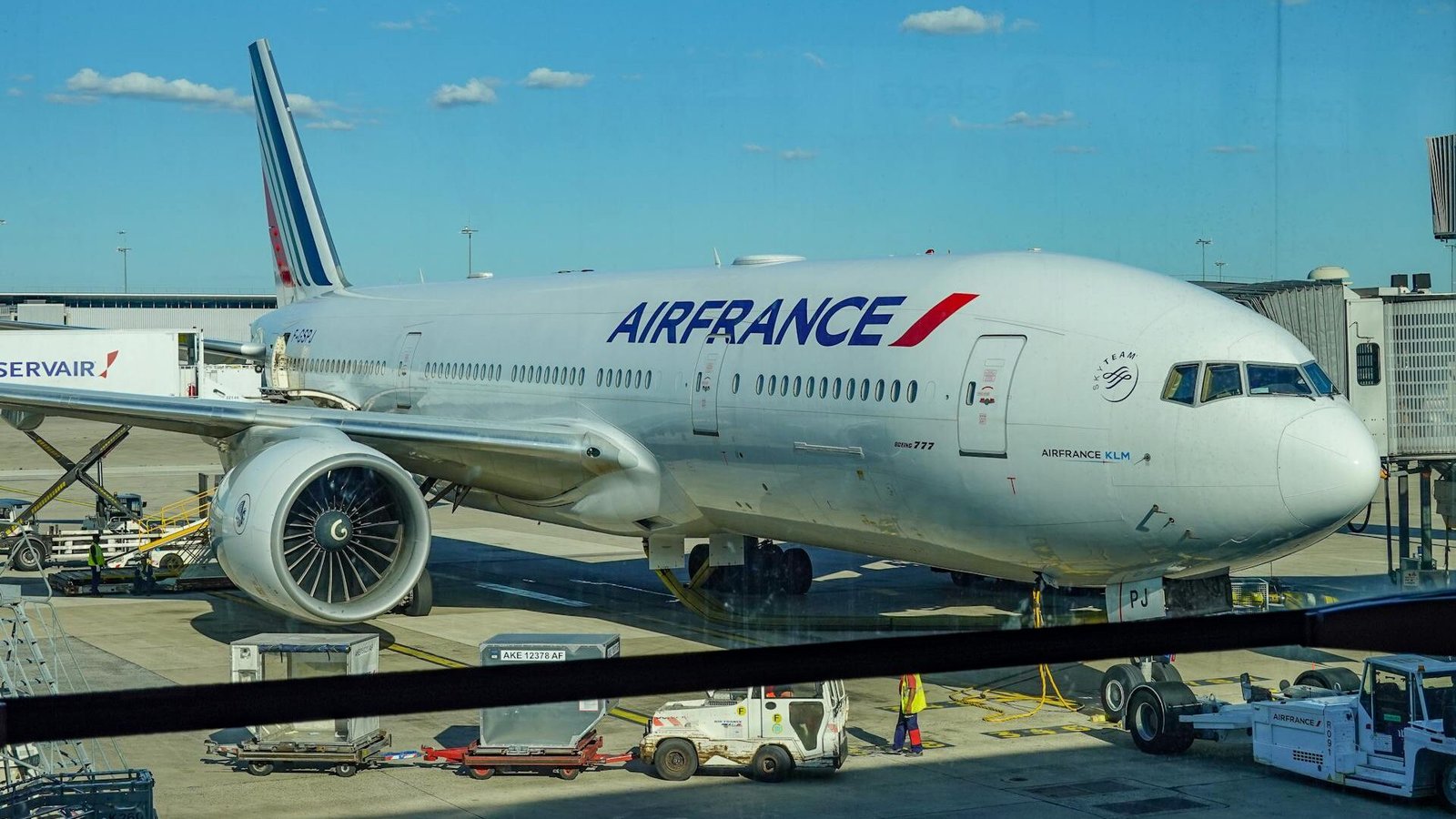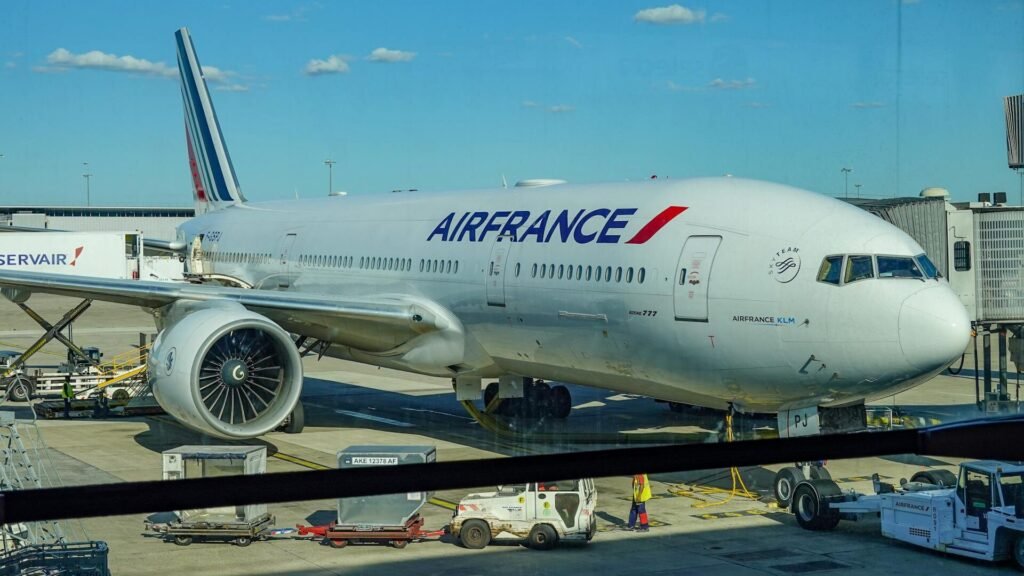
In the landscape of international logistics, Dubai, with its advantageous geographical location and well – developed aviation network, has become a crucial hub for numerous merchants in the transportation of sensitive goods. Shipping sensitive goods to Dubai by air, especially those like liquids, powders, and batteries, is fraught with challenges. This article will comprehensively address the common issues related to shipping sensitive goods to Dubai by air, helping you smoothly navigate the transportation difficulties.
1. Core Challenges of Shipping Sensitive Goods to Dubai by Air
Defining the Difference between “Sensitive Goods” (Liquids, Powders, Batteries) and General Goods
In the context of shipping sensitive goods to Dubai by air, sensitive goods typically refer to those that, due to their unique properties, may pose potential risks to transportation vehicles, personnel safety, or the environment during transit. Liquids, powders, and battery – related goods are typical examples. Compared with general goods, they have more distinctive physical and chemical properties. For instance, liquids are prone to leakage, powders may be flammable, explosive, or easily diffusible, and batteries carry risks of short – circuits and fires. Understanding these differences is the primary prerequisite for handling the air transportation of sensitive goods to Dubai.
The Special Regulatory Framework for Dangerous Goods by Dubai Customs
Dubai Customs has established a stringent regulatory system for dangerous goods, which is of great significance in shipping sensitive goods to Dubai by air. The customs has formulated detailed air transportation regulations to standardize every aspect of the transportation of dangerous goods. Additionally, there is a clear embargo list that strictly prohibits the air transportation of specific dangerous goods. For example, certain highly toxic chemicals and strongly corrosive liquids are absolutely not allowed to be transported via the air freight of sensitive goods to Dubai. Throughout the entire process from cargo declaration, inspection to release, the customs remains highly cautious, strictly controlling every link to ensure the safety of air transportation.
Common Misconception: Door – to – Door Delivery with DDP ≠ 100% Exemption from Inspection (Illustrated with a Case)
In the business of shipping sensitive goods to Dubai by air, many shippers have a common misconception that choosing the Door – to – Door Delivery with Delivered Duty Paid (DDP) service means their goods can pass through customs smoothly without worrying about inspections. However, this is not the case. Take a merchant as an example. The merchant shipped a batch of alcohol – containing cosmetics to Dubai through the DDP service, assuming everything was in order. But after the goods arrived at Dubai Airport, during the routine customs inspection, it was found that the packaging of some products did not meet the leak – proof standards.
Despite choosing the DDP service, the goods were still detained. This case clearly shows that although the DDP service covers aspects such as customs declaration, customs clearance, and payment of customs duties, it does not guarantee that the goods will be completely exempt from customs inspections. Based on safety and compliance considerations, the customs has the right to inspect any goods, which is a crucial point not to be overlooked in shipping sensitive goods to Dubai by air.
2. Comprehensive Analysis of Transporting Liquid Goods
Key Issues: Transportation Restrictions on Cosmetics, Chemicals, and Alcoholic Liquids
In shipping sensitive goods to Dubai by air, cosmetics, chemicals, and alcoholic liquids face numerous transportation restrictions. Cosmetics such as perfumes and nail polishes contain alcohol and are flammable liquids. Some chemicals may be corrosive or toxic. Alcoholic liquids are strictly regulated due to their flammability and concentration. Generally, liquids with an alcohol content exceeding a certain proportion have significantly higher transportation difficulties and requirements.
Solutions
- Packaging Specifications: For liquid goods in shipping sensitive goods to Dubai by air, leak – proof packaging must be used to prevent liquid leakage caused by Bumping,collisions, or other factors during transportation. At the same time, the packaging should be clearly marked with the UN mark, which is an internationally recognized packaging mark for dangerous goods, indicating that the packaging meets specific safety standards and is an important symbol for the compliant transportation of liquid goods.
- Required Documents: The Material Safety Data Sheet (MSDS) is an essential document. It elaborates on key information such as the physical and chemical properties, hazards, and safety operation guidelines of chemicals, serving as an important basis for the customs to assess the safety of the goods. In addition, a component analysis sheet is also required, clearly listing the components of the liquid to help the customs accurately judge its risk level. These two documents are the core parts of dangerous goods certification and are of great importance for liquid goods in shipping sensitive goods to Dubai by air.
Pitfall – Avoidance Guide: Special Requirements for UAE GCC Certification
When shipping liquid goods to Dubai by air, special attention must be paid to the special requirements of UAE GCC certification. The GCC certification is a certification system implemented by the Gulf Cooperation Council for specific products. For some liquid products, such as cosmetics and food additives, they can only be sold in the UAE market after obtaining the GCC certification. Therefore, before transportation, it is necessary to confirm whether the goods require this certification and make full preparations in advance to avoid the detention or return of goods in Dubai due to the lack of certification.

3. Comprehensive Analysis of Transporting Powder Goods
Key Issues: Declaration Traps for Medicine Powders, Industrial Powders, and Food Powders
In shipping sensitive goods to Dubai by air, medicine powders, industrial powders, and food powders are prone to getting trapped in the declaration process. Medicine powders may involve drug regulatory issues and require the provision of relevant drug permit certificates. Industrial powders may have potential hazards due to their complex components, and their characteristics must be accurately described during declaration. Food powders need to meet food safety standards and require the provision of certificates of origin and other documents. Once the declaration information is inaccurate or incomplete, the goods are likely to be detained by the customs.
Solutions
- Process of Issuing a Non – Dangerous Goods (Non – DG) Certificate: To prove that powder goods are not dangerous goods, a Non – DG certificate is usually required. The specific process is as follows: First, the shipper submits the cargo sample and relevant materials to a professional testing institution. The testing institution conducts a comprehensive testing and analysis of the sample to determine whether the goods are dangerous. If they are determined to be non – dangerous, a Non – DG certificate will be issued, which is a crucial document for the smooth transportation of powder goods in shipping sensitive goods to Dubai by air.
- Avoiding Detention: Ensure the transparency of components by listing the components, uses, and other information of the powder in detail in the declaration documents. At the same time, provide a certificate of origin to prove the legality of the goods’ origin and compliance with relevant quality standards. By taking these measures, the risk of customs detention can be effectively reduced, ensuring the smooth transportation of powder goods in shipping sensitive goods to Dubai by air.
Industry Update: New Regulatory Regulations for Nano – Powders in Dubai in 2025
With the rapid development of nanotechnology, the application of nano – powders is becoming more and more widespread. Since 2025, Dubai has introduced new regulatory regulations for nano – powders. Due to their tiny particles and special properties, nano – powders may have unknown impacts on human health and the environment. By then, shipping nano – powders to Dubai by air will require more stringent declaration, packaging, and testing requirements. Relevant enterprises must pay close attention to this development and make preparations in advance to adapt to the new regulatory environment.
4. Comprehensive Analysis of Transporting Battery – related Goods
Key Issues: Transportation Bans on Lithium Batteries, Energy – storage Devices, and Battery – containing Products
In the field of shipping sensitive goods to Dubai by air, lithium batteries, energy – storage devices, and battery – containing products face strict transportation bans. Lithium batteries have a high energy density, and in case of short – circuits or overheating, they may cause fires or even explosions. Energy – storage devices have a large capacity and also carry safety risks. Battery – containing products also need to follow specific transportation rules. For example, lithium batteries exceeding a certain power may be prohibited from air transportation or require special conditions for transportation.
Solutions
- Mandatory Certification: The UN38.3 test is a mandatory certification for the transportation of lithium batteries. It mainly tests the safety of batteries under various extreme conditions, such as high and low temperatures, vibration, and shock. In addition, a 1.2m drop test report is also required to prove that the battery packaging can maintain its safety performance after a certain height of drop test. These certifications are crucial for the air transportation of battery – related goods to Dubai.
- Packaging Standards: Battery packaging must have a fire – proof and short – circuit – proof design. Usually, fire – proof materials are used for the outer packaging, and an insulating layer is set inside to prevent short – circuits. At the same time, relevant information about the battery, such as model, capacity, and voltage, should be clearly marked on the packaging to ensure the safe transportation of battery – related goods in shipping sensitive goods to Dubai by air.
Emerging Trend: Green Channel Policy for Solar Batteries
In recent years, Dubai has been actively promoting the development of renewable energy and has introduced a green channel policy for solar batteries. Solar batteries that meet specific standards may enjoy preferential measures such as simplified procedures and priority inspection when shipped to Dubai by air. This policy aims to encourage the development of the solar energy industry and promote the wide application of clean energy. Relevant enterprises can make full use of this policy advantage to optimize the transportation process of solar batteries.
5. Practical Guide to Door – to – Door Delivery with DDP Service
Process Breakdown
- Booking: In the Door – to – Door Delivery with DDP service for shipping sensitive goods to Dubai by air, the shipper needs to book shipping space with a freight forwarder or an airline. Provide detailed cargo information, including weight, volume, and category, so that the other party can arrange a suitable flight and shipping space, laying the foundation for the transportation of goods.
- Declaration: Preparing detailed and accurate declaration documents is a crucial step. This includes regular documents such as commercial invoices, packing lists, and bills of lading. Additionally, special documents corresponding to the nature of the goods, such as MSDS reports and Non – DG certificates, are also required. The declaration information must be filled in truthfully without concealment or false reporting to ensure compliance with relevant regulations during the declaration process of shipping sensitive goods to Dubai by air.
- Customs Clearance in Dubai: After the goods arrive at Dubai Airport, the customs clearance agent is responsible for handling the customs clearance procedures. The customs clearance agent needs to communicate actively with Dubai Customs, submit documents in a timely manner, and answer customs questions to ensure that the goods fully comply with local laws, regulations, and standards and complete the customs clearance process smoothly.
- Final Delivery: After customs clearance, arrangements are made for the delivery of goods from the airport to the destination to ensure that the goods are delivered to the customer on time and safely, completing the last link of the Door – to – Door Delivery with DDP service for shipping sensitive goods to Dubai by air.
Risk Warnings
- “Door – to – Door Delivery” ≠ Compensation – inclusive: In the Door – to – Door Delivery with DDP service for shipping sensitive goods to Dubai by air, it should be clear that “Door – to – Door Delivery” only covers customs declaration, customs clearance, and payment of customs duties. It does not mean that the service provider will bear any losses that occur to the goods during transportation. Both parties must clearly define the liability boundary in the contract. For example, if the losses are caused by problems with the goods themselves, the service provider may not be liable for compensation.
- Verification of the Qualifications of Sensitive Goods Agents: When choosing a sensitive goods agent, it is of vital importance to verify their qualifications. The transportation of sensitive goods involves special permits, such as dangerous goods transportation permits. The agent must possess the corresponding qualifications to legally and professionally handle the air transportation of sensitive goods to Dubai. You can evaluate their qualifications by checking the agent’s business license, relevant qualification certificates, and past business records.
Cost Optimization
Consolidated shipping is a cost – effective strategy in the Door – to – Door Delivery with DDP service for shipping sensitive goods to Dubai by air. For sensitive goods with a small volume, consolidated shipping can combine the goods of multiple shippers in one container, sharing the transportation cost. However, it should be noted that the declaration and packaging requirements for consolidated goods are equally strict, and different goods should avoid affecting each other to ensure the smooth progress of consolidated shipping in shipping sensitive goods to Dubai by air.

6. High – frequency Question & Answer Set
Question 1: Do Liquid Goods Need to Be Shipped Frozen?
In shipping sensitive goods to Dubai by air, not all liquid goods need to be shipped frozen. This depends entirely on the nature of the liquid. For example, some perishable liquid foods and biological products may need to be shipped frozen to maintain their quality. However, common cosmetics, chemicals, and other liquids do not need to be frozen as long as they remain stable at normal temperatures. Before transportation, it is necessary to accurately confirm the characteristics and transportation requirements of the liquid to ensure that the transportation process complies with regulations.
Question 2: What Should Be Done if Powder Goods Are Sampled for Inspection by the Customs?
If powder goods in shipping sensitive goods to Dubai by air are sampled for inspection by the customs, the first thing is to stay calm. Cooperate actively with the customs to provide the required documents and information, such as Non – DG certificates and component analysis sheets. If the goods indeed meet the transportation standards, the customs will release them after the inspection. If the test results do not meet the requirements, appropriate handling measures should be taken according to the customs’ instructions, such as supplementing documents, rectifying packaging, or arranging for return transportation, to ensure the compliance of the goods’ transportation.
Question 3: Can Battery – related Goods Be Shipped via Express Channels?
In shipping sensitive goods to Dubai by air, some battery – related goods can be shipped via express channels, but they must meet strict conditions. For example, lithium – ion batteries usually need to comply with the UN38.3 certification, and their power and quantity must be within the scope specified by the express carrier. In addition, the express packaging also needs to meet the corresponding standards. Different express carriers may have slightly different regulations for battery – related goods, so it is necessary to consult in detail before shipping to ensure the smooth transportation of battery – related goods via express channels.
Question 4: Does Door – to – Door Delivery with DDP Include Customs Duties?
In the Door – to – Door Delivery with DDP service for shipping sensitive goods to Dubai by air, generally, “Delivered Duty Paid” means that the service provider is responsible for estimating and paying the customs duties required for the import of the goods. However, it should be noted that if the actual customs duties differ from the estimated amount due to factors such as adjustments to the declared value of the goods or changes in customs policies, additional fees may be incurred or a refund of the difference may be made. The specific situation needs to be clearly agreed upon in the contract to avoid subsequent disputes.
7. Future Trends and Compliance Recommendations
New Regulations in 2025: Pilot Program for Drone Delivery of Sensitive Goods
In 2025, Dubai plans to launch a pilot program for the drone delivery of sensitive goods. This innovative initiative aims to improve transportation efficiency, reduce costs, and explore new models for the transportation of sensitive goods. However, the drone delivery of sensitive goods must meet strict safety and regulatory requirements, such as flight route planning, cargo fixation, and safety guarantees. For enterprises engaged in shipping sensitive goods to Dubai by air, they should pay close attention to the progress of the pilot program and understand relevant technical and regulatory requirements in advance to better adapt to future changes in the transportation model.
Enterprise Compliance Tips: Establishing a Transportation Blacklist Database
To ensure compliance in the business of shipping sensitive goods to Dubai by air, enterprises should establish a transportation blacklist database. Enter in detail the information of goods that do not meet Dubai’s transportation regulations or have caused transportation problems, including the name, characteristics, and non – compliance situations of the goods. During the subsequent business operations, conduct strict screening of new orders to avoid transporting goods on the blacklist, thereby effectively reducing transportation risks and ensuring the smooth progress of the business.
Resource Recommendation: Official Inquiry Tool of the General Civil Aviation Authority of the UAE (GCAA)
The General Civil Aviation Authority of the UAE (GCAA) provides an official inquiry tool, which is a valuable resource for enterprises engaged in shipping sensitive goods to Dubai by air. Through this tool, enterprises can query relevant regulations, policies, and transportation requirements for shipping sensitive goods to Dubai by air, obtain the latest information, and ensure that their transportation operations strictly comply with local regulations. At the same time, enterprises should also pay close attention to the notices and guidelines officially released by the GCAA to keep abreast of industry trends and provide strong support for the compliant operation of shipping sensitive goods to Dubai by air.





